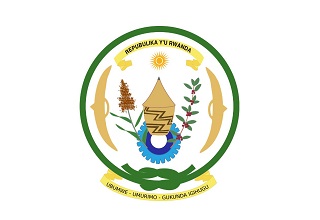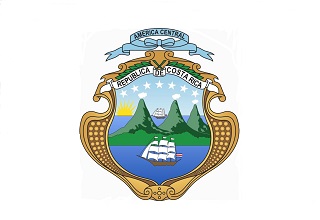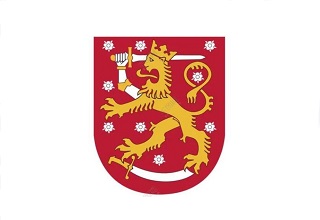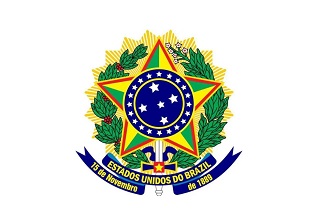Regarding the Inspection and Quarantine Requirements for Fresh Tahiti Lime from Colombia to China
In accordance with relevant Chinese laws and regulations and the "Protocol on Plant Quarantine Requirements for the Export of Fresh Tahitian Lemons from Colombia to China between the Customs of China and the Ministry of Agriculture and Rural Development of Colombia", the import of fresh Tahitian lemons from Colombia that meet the following requirements is allowed from now on.
I. Inspection and quarantine basis
(I) "Biosafety Law of the People's Republic of China";
(II) "Law of the People's Republic of China on Entry and Exit Animal and Plant Quarantine" and its implementing regulations;
(III) "Food Safety Law of the People's Republic of China" and its implementing regulations;
(IV) "Measures for the Supervision and Administration of Inspection and Quarantine of Imported Fruits";
(V) "Protocol on Plant Quarantine Requirements for the Export of Fresh Tahitian Lemons from Colombia to China between the General Administration of Customs of the People's Republic of China and the Ministry of Agriculture and Rural Development of the Republic of Colombia".
II. Names of commodities allowed for import
The products allowed for import in this announcement are fresh Tahitian lemons (hereinafter referred to as lemons), with the scientific name Citrus latifolia Tanaka and the English name Fresh Tahiti Lime.
III. Permitted origins
Tahiti lemon producing areas in Colombia
IV. Enterprise Registration
The lemon orchards and packaging plants exported to China must be reviewed by the Agricultural and Livestock Administration of the Ministry of Agriculture and Rural Development of Colombia and approved for registration by the Chinese Customs. The registration information should include the name, address and registration number so that the exported goods can be accurately traced back to the registered orchards and packaging plants when they do not comply with the relevant provisions of this announcement. Before the export season each year, the Agricultural and Livestock Administration of the Ministry of Agriculture and Rural Development of Colombia shall provide the registration list to the Chinese Customs, which will be published on the website after review and approval by the Chinese Customs.
V. Quarantine Pests of Concern
1. Dysmicoccus neobrevipes
2. Lopholeucaspis cockerelli
3. Planococcus minor
4. Selenaspidus articulatus
5. Schizotetranychus hindustanicus
VI Pre-export management
(I) Orchard Management.
1. Lemon orchards exported to China should establish a sound quality management and traceability system under the supervision of the Agricultural and Livestock Administration of the Ministry of Agriculture and Rural Development of Colombia, implement good agricultural practices (GAP), maintain sanitary conditions in the orchard, such as no pollution sources affecting fruit production in the surrounding area, timely clean up fallen and rotten fruits, and implement integrated pest management (IPM), including regular pest monitoring surveys, physical, chemical or biological pest control, and agricultural operations and other prevention and control measures.
2. The Agricultural and Livestock Administration of the Ministry of Agriculture and Rural Development of Colombia should formulate a management plan for quarantine pests of concern to the Chinese Customs in accordance with the requirements of the International Standard for Phytosanitary Measures No. 6 (ISPM 6) and organize orchard monitoring. In order to monitor and capture pests, in addition to visual inspections, some physical and chemical control methods should also be used in orchards.
3. For scale insect pests, orchard monitoring should be carried out at least every 15 days from the flowering period to the harvest period to check whether there are scale insects on the fruits, stems and leaves.
4. If pests or their corresponding symptoms are found during monitoring, comprehensive management measures including chemical, physical or biological control shall be taken to ensure that the lemons exported to China do not carry quarantine pests of concern to the Chinese Customs.
5. Pest monitoring and control shall be carried out under the guidance of professional technicians. The technicians shall receive training from the Agricultural and Livestock Administration of the Ministry of Agriculture and Rural Development of Colombia or its authorized training institutions.
6. The Agricultural and Livestock Administration of the Ministry of Agriculture and Rural Development of Colombia shall keep records of pest monitoring and control in registered orchards and provide them to the Chinese Customs when necessary. The control records shall include information such as the name, active ingredients, dosage and time of the chemical agents used during the growing season.
(II) Packaging plant management.
1. The processing and packaging process of lemons exported to China shall be carried out under the quarantine supervision of the Agricultural and Livestock Administration of the Ministry of Agriculture and Rural Development of Colombia or its authorized officials.
2. The packaging plant for lemons exported to China shall be clean and hygienic, with hardened floors and raw material fields and finished product warehouses.
3. The storage, processing, handling, and storage areas of lemons exported to China should be relatively independent and reasonably laid out, and isolated from the living areas.
4. During the packaging process, lemons exported to China should be manually selected, graded, and cleaned to remove diseased, insect-infested, rotten, deformed fruits, branches, leaves, fruit stalks, or other plant residues and soil.
5. If packaged lemons need to be stored, they should be immediately put into storage and stored separately to avoid reinfection by pests.
6. Registered packaging plants should establish a traceability system to ensure that Colombian lemons exported to China can be traced back to registered orchards. The information of the traceability system should include the date of processing and packaging, the name of the source orchard or its registration number, the date of export, the export quantity, the country of export, the container number, etc.
(III) Packaging requirements.
1. The packaging materials should be clean, hygienic, unused, and meet the relevant plant quarantine and hygiene requirements of China. If wooden packaging is used, it must meet the requirements of International Standard for Phytosanitary Measures No. 15 (ISPM 15).
2. Each package box must be labeled in Chinese or English with the fruit name, variety, country, origin, registered orchard and packaging factory name or its registration number. Each package box and pallet must be labeled in Chinese or English with "输往中华人民共和国" or "Exported to the People's Republic of China".
3. Containers loaded with Colombian lemons must be checked for good sanitary conditions before packing. The containers should be sealed and the seals should be intact when arriving at the Chinese entry port.
(IV) Pre-export inspection and quarantine.
1. Before export, the Department of Agriculture and Livestock of the Ministry of Agriculture and Rural Development of Colombia should sample and inspect each batch of lemons exported to China at a rate of 2%. If there are no plant quarantine issues within two years, the sampling rate will be reduced to 1%.
2. If branches, leaves, soil or quarantine pests of concern to Chinese Customs listed in this announcement are found, the entire batch of goods shall not be exported to China, and the export of lemons from the relevant orchards and packaging plants to China in this export season shall be suspended as appropriate. The Agricultural and Livestock Administration of the Ministry of Agriculture and Rural Development of Colombia shall find out the reasons and take corrective measures; at the same time, the Agricultural and Livestock Administration of the Ministry of Agriculture and Rural Development of Colombia shall keep records of seizures and provide them to Chinese Customs upon request.
(V) Requirements for plant quarantine certificates
For goods that have passed quarantine, Colombia should issue a phytosanitary certificate in accordance with International Standard for Phytosanitary Measures No. 12 (ISPM 12), indicating the name of the orchard and packaging plant or its registration number, and fill in the following additional statement:” This consignment complies with requirements specified in the Protocol of Phytosanitary Requirements for Export of Fresh Tahiti Lime Fruits from Colombia to the People's Republic of China, and is free from the quarantine pests of concern to China.”
VII. Entry Inspection and Quarantine and Treatment of Unqualified Products
When Chinese lemons arrive at the Chinese entry port, the Chinese Customs will verify the relevant documents and labels and implement inspection and quarantine in accordance with the following requirements.
(I) Verification of relevant certificates and labels.
1. Verify whether the imported lemons have obtained the "Entry Animal and Plant Quarantine Permit".
2. Verify whether the plant quarantine certificate complies with the provisions of Article 6, Item (V) of this Announcement.
3. Verify whether the labels on the packaging boxes or pallets comply with the provisions of Article 6, Item (III) of this Announcement.
(II) Entry Inspection and Quarantine.
1. Chinese lemons should enter the country from ports where China allows the import of fruits.
2. According to relevant laws, administrative regulations, rules, etc., imported lemons will be subject to inspection and quarantine. If they pass the inspection and quarantine, they will be allowed to enter the country.
(III) Treatment of Unqualified Products.
1. If it is found that the goods come from unregistered orchards or packaging plants, the batch of goods will not be allowed to enter the country.
2. If quarantine pests of concern to China or other quarantine pests newly occurring in Colombia are found, or soil, plant residues, etc. are found, the batch of goods will be returned, destroyed or pest-free.
3. If it is found that the goods do not meet the national food safety standards of China, the batch of goods will be returned or destroyed.
4. If the above-mentioned non-conformities are found, China will immediately notify Colombia and suspend the import of lemons from the relevant orchards and packaging plants in this export season as appropriate. Colombia should find out the reasons for the non-conformities and require the relevant orchards and packaging plants to make rectifications until the relevant rectification measures are effectively implemented and recognized by China.
GACC
May 26, 2025




